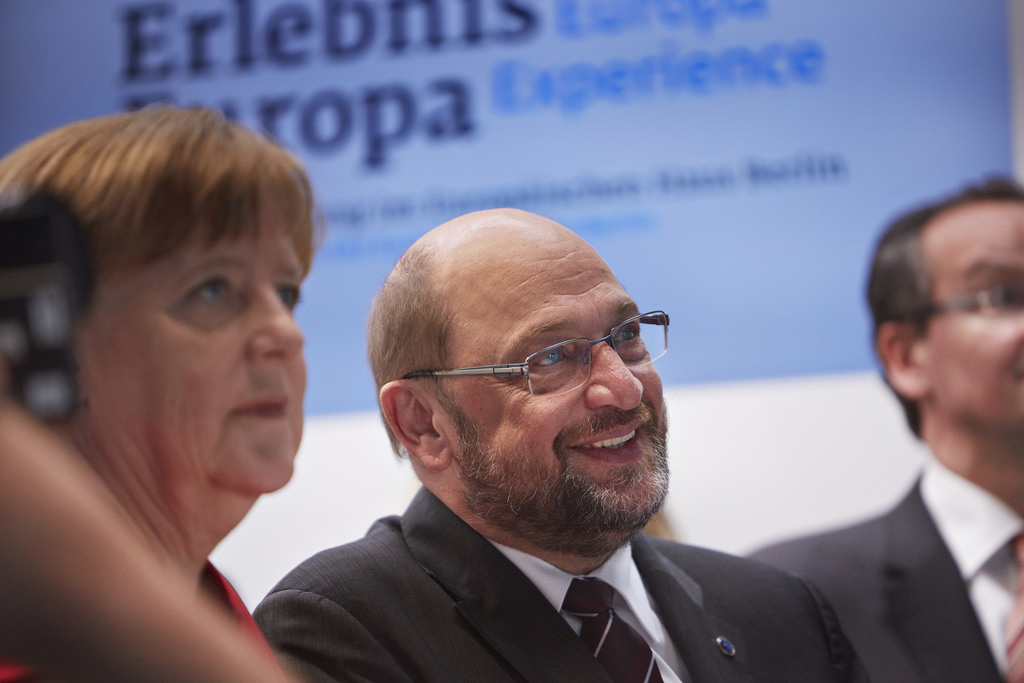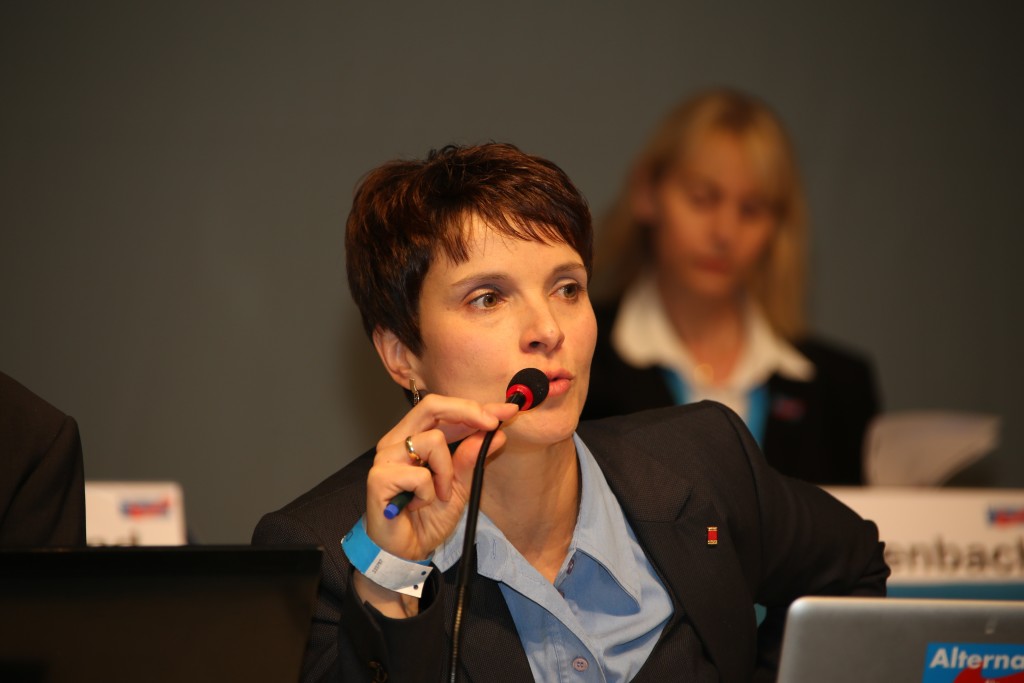
The wave of anti-globalization that has overwhelmed the West over the past year has left no country untouched; political movements everywhere are questioning whether global integration should have measured “progress” for so long. Nowhere has integration gone further in the past few decades than with the construction of the European Union, and nowhere is liberalism currently facing greater challenges. Core European countries are undergoing a rapid turn away from globalization; Brexit barely needs mention, while the success of anti-establishment parties in Italy and the strength of nationalistic populism in France threaten another two pillars of the EU.
In particular, Germany, recognized as the gravitational center of the European Union, recently saw decades of political stability upended by its citizenry’s severe reaction to a sudden influx of refugees from the Middle East and Africa. The fundamental role of the German economy and central bank in the functioning of the European Union means even partial success of anti-globalization forces in the 2017 German elections would likely spell the end of the EU, at least in the form it takes now. It is critical then to understand the movement of various political tides inside of Germany today to be able to form a reasonable expectation of how the EU will function in the years to come.
Angela Merkel: Long Live the Queen?
The longstanding Chancellor of Germany would despise any equivalence to monarchy, but Merkel’s coolheaded instinct for pragmatism and coalition-building afforded her ultimate authority in Germany, and thus in Europe, for over a decade. Since she was first elected in 2005, Merkel has never failed to defend liberal values of openness and cooperation, and continues to do so in the face of increasing skepticism and defiance from other European leaders.
The erosion of support for these values is quickly spreading, however, even among the citizens of her own country. Merkel’s domestic status, formerly unquestionable, suffered repeated blows over the course of 2016 – much of it stemming from her decision to fully open Germany’s borders to refugees escaping conflict in the Middle East, North Africa and elsewhere. The decision created an immediate political backlash, amplified by refugees’ involvement in the sexual assaults in Cologne and the terrorist attack in Berlin. As a result, Merkel’s influence on matters of integration was substantially weakened even within her own party, the traditionally conservative Christian Democratic Union (CDU). A striking mark of this split was the open disparagement of the refugee policy by the leader of the Christian Social Union, the Bavarian sister party to the CDU.
Merkel has attempted to reconcile her party by tightening restrictions on migration, but her political stock has yet to recover ahead of a crucial election year. Merkel’s announcement, following the US election, to stand for a fourth term as Chancellor was heavy with responsibility and light on enthusiasm; understandably, she seems as weary with the onerous job as Germans have grown with her.
For the EU, this unexpected recession of Merkel’s power in Germany is an ominous sign. Merkel’s political pragmatism in response to the rebounding conservatism in her party has already caused her to back away from liberal integrationist policies; she will continue to be drawn further away from liberalism to maintain the strained cohesion of the CDU. Right now, Germany’s central role in the EU positions it as the de facto coordinator of policies among member states. However, uncertainty in German assurance of openness in migration, trade and lending will give globalist figureheads of other countries less reason to maintain their own liberalized policies. This equals more pressure across the EU to relent to the demands of nationalistic forces and will lead to a breakdown in the system as it exists today. Merkel as Chancellor once again is likely to further the disintegration of the EU, against her own personal beliefs, sadly enough.
Frauke Petry: Princess of Populism
As Merkel’s star begins to fade in the German political sphere, another political body is consequently growing in mass. The attributes of such a party are familiar to most countries by now: far-right, populist, protectionist, and frequently xenophobic. The German manifestation of this phenomena calls itself Alternative for Germany (AfD).
Founded in 2013 as a benignly anti-euro party, the AfD subsequently grew into ethno-nationalism, accommodating conservative voters for whom the CDU had become too left-leaning under Merkel. Since then, it has successfully ruptured the duopoly in German politics between the CDU and the center-left Social Democratic Party (SPD). The 2016 state elections in Berlin, considered a microcosm of German politics, exemplified this shift: the AfD was only five and a half points behind the CDU, and gained seats in the capital city’s parliament. Nationally, the AfD is secure as the third strongest party in Germany, polling as high as 14.2 percent in September of last year.
Among a host of controversial figures at the front of this explosive party, the most prominent is the current chairperson Frauke Petry, a former chemist and small business owner. Petry, belying a demure appearance, has no reservations in her message; in contrast to Merkel, she once publicly called for police to use firearms to prevent refugees from crossing the German border. It was Petry who pushed out the founder of the AfD in 2015 and took the party in a more extreme direction, and she has situated the AfD in the network of nationalist-populist movements in Europe.

These actions have emboldened Petry’s message throughout Germany and undermined the established parties’ bases of support. The CDU’s pivot away from Merkel partly came as a response to Petry’s insurgency, as conservatives looked to plug the leak of voters to the AfD. With current poll numbers, the AfD is predicted to earn seats in the Bundestag, Germany’s national legislature, in the coming 2017 elections, thereby turning up the volume on Petry and others’ bombastic voices. With greater weight, Petry’s anti-euro influence will spread among conservative members of the Bundestag and, with no potent counterweight, may succeed in closing off Germany from the EU. Coinciding with another Merkel chancellorship, even mild success for the AfD in the coming elections will accelerate, and exaggerate in the media, Germany’s turn away from liberalism – exacerbating the outcomes detailed above.
Martin Schulz: The Left’s Knight in Shining Armor
The rise of Petry and the AfD was an unstoppable force in German politics through the end of 2016, a populist movement gearing up to shock the world in the same manner as Brexit and the US election of President Trump. Hope for a strong contender from the center-left party was ruled out by the presumption that Sigmar Gabriel would be the SPD’s candidate, a man even more unappealing to German voters than Merkel. Germans became resigned to the inevitability of a deflated coalition led by Merkel and the CDU emerging from the 2017 elections, struggling against relentless attacks from the AfD. In January of this year, however, Gabriel disclosed in an interview his intention to stand aside in an unwinnable contest for him, his statement surprising close colleagues in his party. In his place, Gabriel endorsed Martin Schulz, the President of the European Parliament at the time, and suddenly the run up to election was injected with renewed vitality.
Schulz is an uncharacteristic candidate for any country’s top spot. A secondary school dropout, he nearly died from alcoholism in his twenties, but fortunately recovered and opened a bookstore before becoming mayor of his city for eleven years. Schulz followed this extraordinary reversal with a successful run for the European Parliament, serving there for 22 years and as President for the last four. This trajectory gives Schulz a unique appeal to German voters; his unglamorous background and focus on social welfare lends him populist power against “elites”, but his conviction in the values of the European Union sets him apart from nationalists. In the matter of weeks since Schulz assumed the nomination, the SPD jumped eleven points in national polls, essentially erasing the gap between them and the CDU. Consequently, the AfD’s polling has dropped to about ten percent nationally, as Merkel-fatigued voters are drawn to an impassioned candidate with more fair-minded stances.
The precipitous rise of Schulz in Germany’s political battleground is a huge boon for the continued existence of the European Union. Fresh from his presidency of the European Parliament, Schulz is more integrationist than Merkel in many regards, and he frames this motivation in idealistic rather than pragmatic terms. This optimistic ideology directly counters the doom and gloom protectionism of the AfD but has a similarly invigorating effect for voters. In the event that the SPD forms a governing coalition with the other liberal parties in Germany, the Green Party and the Left, Schulz can easily block out calls from the right to abandon the European Union. This would reaffirm Germany’s commitment to lend to distressed EU countries and allow the free movement of people and goods. Schulz as Chancellor would restore and fortify the state of the EU, heralding deeper integration among the member states; a formerly far-fetched European political union would no longer be out of the question. If the continued existence of the EU is to be entirely guaranteed, Schulz and the SPD must gain victory in the coming national elections.
A Game Far from Finished
Schulz’s stock trends upwards every day, and his momentum has lead him to proclaim near certainty in victory for the SPD in 2017. Schulz’s confidence is premature, however; he has been a candidate for less than two months, and the CDU has barely begun to orchestrate their campaign against him. There are a number questions to be resolved in the time before the election: Will Schulz’s lack of experience at the federal government undo his capacity in the eyes of voters? Will Merkel convince others that an era of Trump demands her steadiness for Germany? Will Petry and the AfD temper their rhetoric to sway more voters from the middle ground? The German elections take place on September 24th of this year, leaving plenty of time for the political fortunes of these three figures to change dramatically, in practically any direction. Close attention must be paid to the shifting balance amongst these forces, as nothing less than the fate of the European Union hangs in the balance.
The views expressed by the author do not necessarily reflect those of the Glimpse from the Globe staff, editors or governors.






